For the last more than two decades, almost everybody is accusing National Conference of resorting to rigging to retain power. Riyaz Ul Khaliq talks to top lot in the oldest Kashmir party to know their side of the story
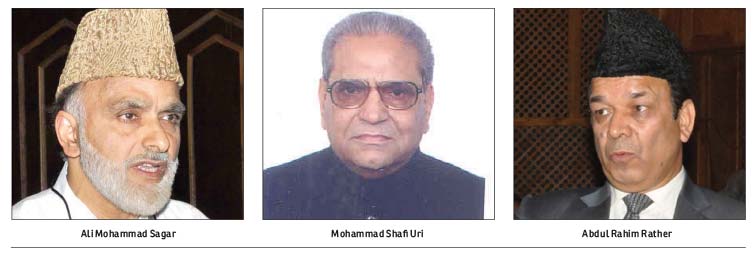
Following Ghulam Mohammad Shah and governor Jagmohan’s “rule” strong disenchantment brewed among people. Shah had deserted NC with 13 MLAs and toppled Farooq. Within 18 months, Farooq entered into an accord with Congress and was back in power. A few months later, assembly elections took place in March 1987.
The 1987 elections witnessed intense electioneering. “People had to walk miles on foot because Muslim United Front (MUF) candidates would be seen addressing hundreds of people on Srinagar streets,” remembers Ghulam Nabi from Pampore.
Participation was historic. But when results were out, MUF had only four seats in its kitty.
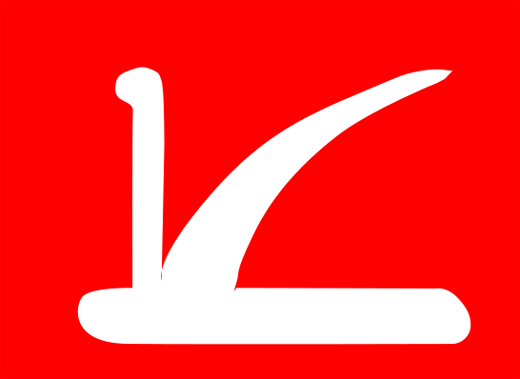
“Many parties, under MUF banner, joined hands to fight National Conference (NC),” says Dr Sheikh Mustafa Kamal, younger son of late Sheikh Mohammad Abdullah. “It was one of the plans of New Delhi to weaken cadre based NC.”
“The MUF exploited Allah, Islam, and Qur’an,” Kamal supports his argument as why huge gatherings would be witnessed around MUF candidates.
But MUF accused NC and Congress of rigging polls. Why did it resort to rigging? “Our alliance with Congress did not go well with general masses,” Kamal says claiming that Congress had back stabbed NC in 1984, “so there was resentment against NC.”
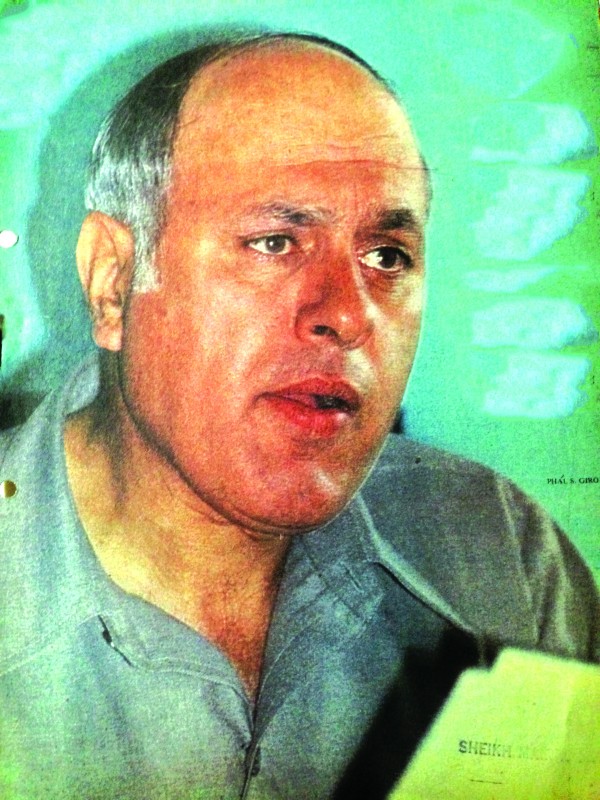
Kamal’s argument is supported by NC old guard and lawmaker from Uri, Mohammad Shafi. “After demise of Sheikh Abdullah, the Farooq-Rajiv Accord did not go well with people,” he said, “NC and Congress had historically fought against each other. It disturbed them.”
Kamal, a medical doctor by profession was posted in Tangmarg area since 1964. He became Medical Officer, before resigning from services, voluntarily, in 1985.
Kamal, who also served as chairperson of Tangmarg Municipal Committee between 1978 and 82, said, “The sole reason I won was because of my popularity in Tangmarg.”
Kamal bagged a whooping 19260 votes (62.63 percent), against his rival Ghulam Hassan Mir’s 10526 votes. The polling percentage in Gulmarg was impressive 78.95 percent.
NC patriarch, Shafi Uri, believes that “there was no substantial threat to NC that it should have resorted to rigging”.
“Why nobody from MUF came forward to file a formal complaint with Election Commission of India (ECI), if they were sure about rigging,” asks Shafi Uri. “There is law. ECI is there to investigate”.
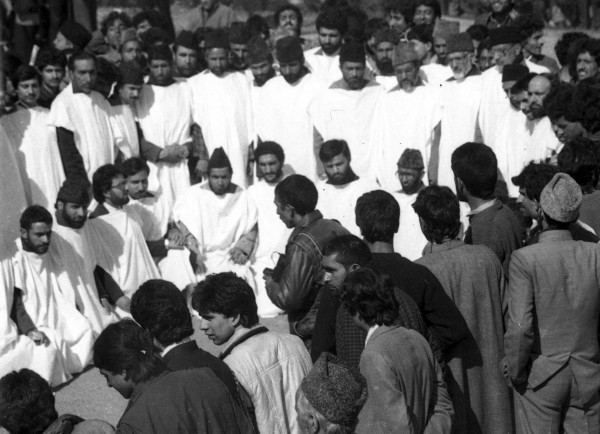
Shafi contested from his hometown Uri in north Kashmir’s Baramulla district. His opponent, Abdul Rehman was a MUF candidate. Shafi won with massive margins bagging 27793 votes against his Rehman’s 2565 votes. “See, MUF had no impact in Uri,” claims Shafi, “Even Rehman belonged to a NC family.”
After Shafi won he helped his opponent Rehman, an Arabic professor, get transferred to Amar Singh College in Srinagar. “He was posted in Kishtwar those days,” claims Shafi.
Kashmir Life talked to people across spectrum, who agreed that NC could have formed government on its own in 1987, however allegation of rigging, left a bad taste despite victory.
“There was a clear division,” an elderly from Old Srinagar said, “Delayed results and missing ballot boxes added to the crisis.”
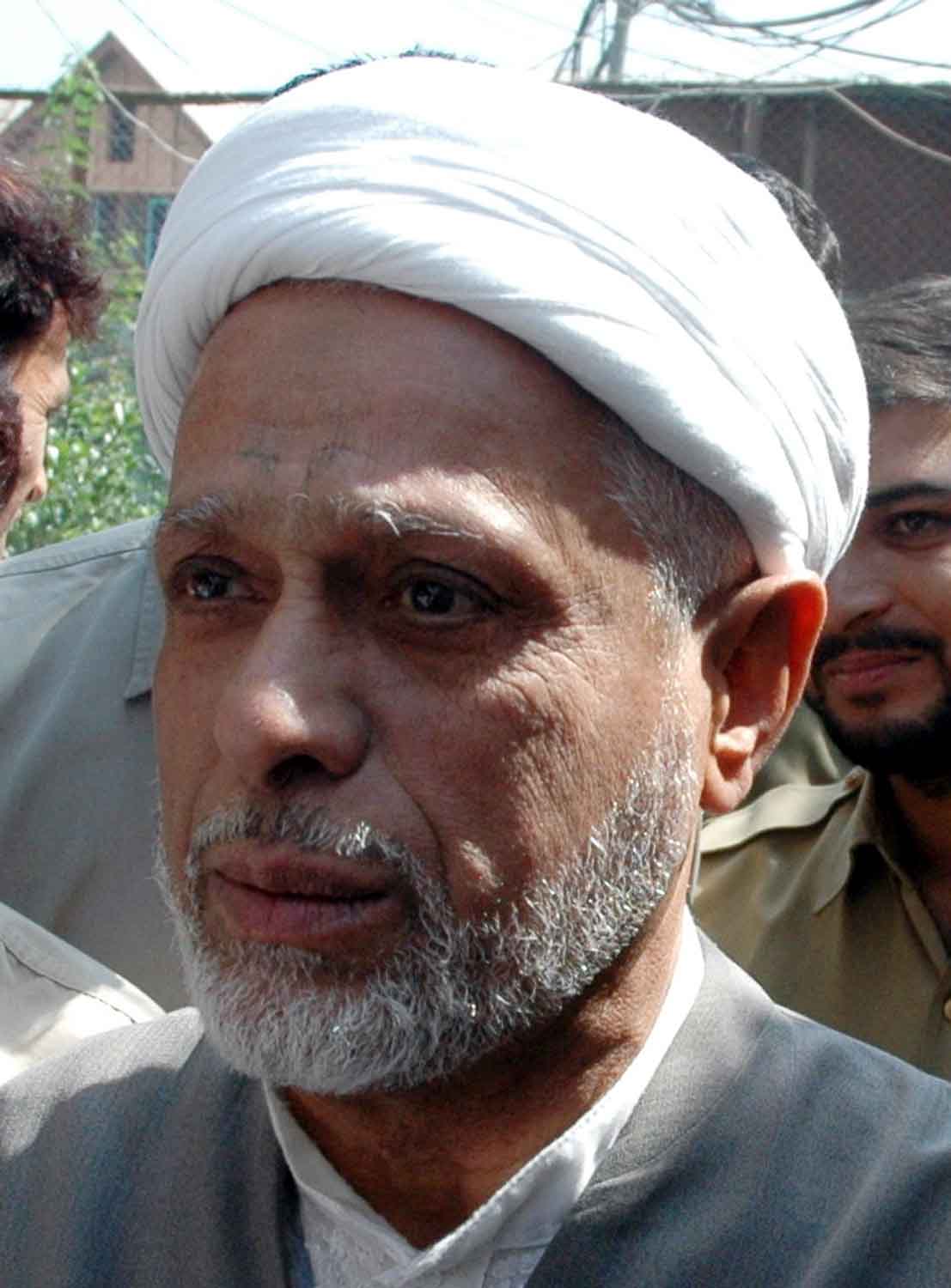
Altaf Hussain Mir, now 38, who teaches English Literature, vividly remembers his participation in MUF rallies.
“Rab barukh halmus, Vote traawow kalmus [Put mud in their (NC)clothes, and vote for pen(MUF)] was one of the famous slogans in Bandipora those days,” says Mir, recalling how children of his age made majority of the MUF rallies. “When results were announced, it shocked everyone. Even NC winners wore sad looks on their faces,” says Mir. “I remember the day when I travelled to Safapora where Maulana Abbas Ansari addressed a rally and whole Sonawari resonated with: Iran say Khabar Aaye, Shia-Sunni Bhai-Bhai slogans.”
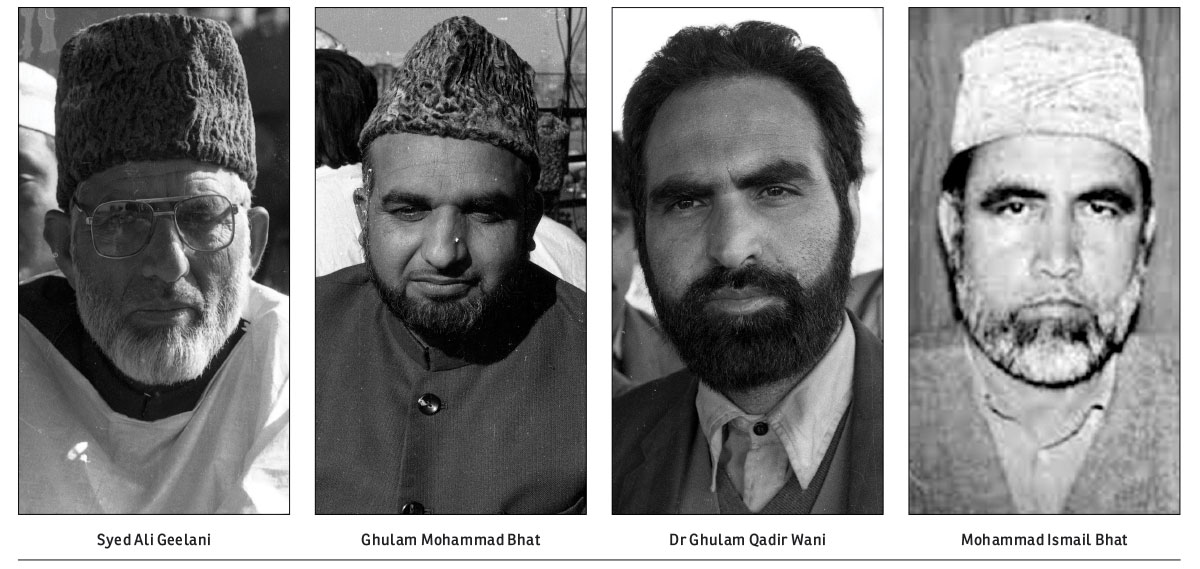
In such an atmosphere, NC’s overwhelming win left room for speculations viz-a-viz rigging, forging of voting slips etc.
“On polling day wherever NC agents saw long queues of opposition voters, they created ruckus. This helped them keep MUF voters away from polling booths,” claims a middle rung Jama’at-e-Islami (JeI) official.
However, NC’s Shafi trashes the narrative. Four of our strong former ministers lost in 1987. “Two seats were won by (Syed Ali) Geelani and (Ghulam Nabi) Sumji. Was it possible then?” he asks. NC’s Abdul Ahad Vakil and Abdul Salam Deva lost to two MUF candidates from Sopore and Homshalibugh.
“Cases of rigging happen across India, however, there is remedy,” Shafi said, “but no one from MUF either went to ECI or to Court.”
Having a sizeable influence in North Kashmir parts, especially Kupwara, People’s Conference (PC) late chairperson, Abdul Gani Lone opted for a petition.
Citing removal of ballot-boxes from the counting station overnight and detention of his 100 counting agents, Lone’s petition to ECI could not help him secure a win.
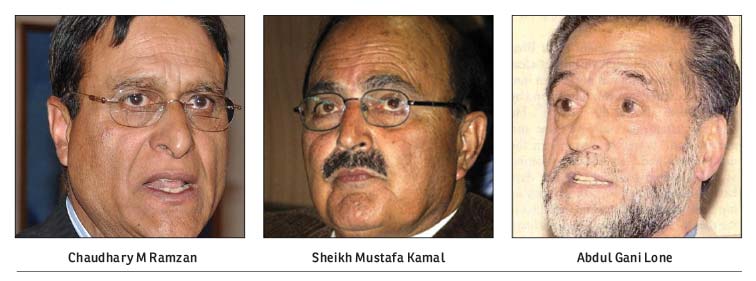 Lone couldn’t materialize his joining hands with MUF and fought elections on his own. Lone lost Handwara seat by around 1400 votes to his arch rival Chaudhary Ramzan. MUF’s Nazir Ahmad Bhat alias Tabassum could secure only 5.60 percent of total 43516 valid polled votes. “There was no challenge at all,” Ramzan claims, “Lone was a big liar with good oratory skills.”
Lone couldn’t materialize his joining hands with MUF and fought elections on his own. Lone lost Handwara seat by around 1400 votes to his arch rival Chaudhary Ramzan. MUF’s Nazir Ahmad Bhat alias Tabassum could secure only 5.60 percent of total 43516 valid polled votes. “There was no challenge at all,” Ramzan claims, “Lone was a big liar with good oratory skills.”
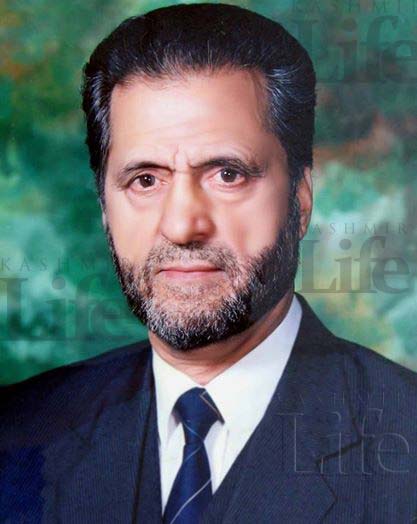
Ramzan, a four time winner from Handwara, supports his argument saying, “Lone was an outsider in our constituency. There was resentment against his earlier stint as minister when he only gave long speeches but did nothing on development front.”
“Look, let me tell you: They (PC) are the same people who brought RSS in Kashmir. A proxy of Congress, it was a party created by agencies,” Ramzan alleged, “People claim that they brought separatists in to mainstream, but they (PC) were never against India.”
While Ramzan claims that Lone had come from Tangdar, Kupwara to fight him in Handwara, the election scene in rest of Kashmir was altogether different.
“It was NC, which is cadre based party, versus the rest.” Ramzan further alleges, “Jama’at was used from time to time by GoI to counter NC. That is why they fought elections. And MUF was one of the examples of that plan.”
Supporting Ramzan’s views, Kamal said, “It was the same Jama’at that stood against late Sheikh Abdullah by aligning with Janta Party in 1977 elections.”
Rubbishing claims of rigging, Ramzan said, “Lone won only once and that too in 1977 when ECI suspended 70 Polling officers. Lone got oath forms of his rival candidates stolen and was declared winner.”
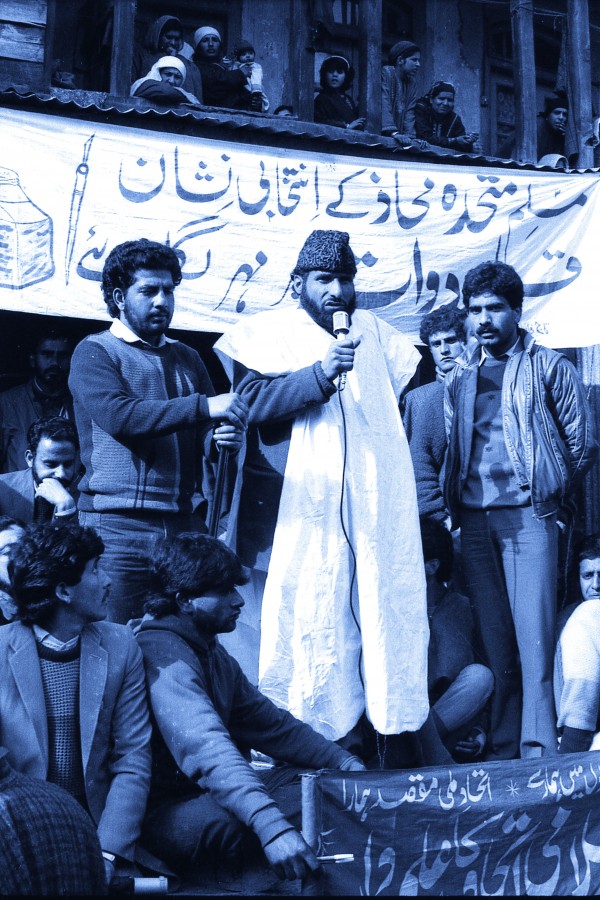
In Srinagar, Amira Kadal seat was talk-of-the-town because of long rallies taken out by MUF’s Mohammad Yusuf Shah. On polling day, Shah was attacked by NC agents, leaving him with 27 stitches on his head. “These things happen. Such complaints do come and come from every corner. It is not restricted to valley,” says Shafi.
On the other hand, Awami Action Committee (AAC) had already joined Farooq in his fight against MUF.
“Mirwaiz Muhammad Farooq was approached by Dr Farooq for seats sharing. As a result, AAC’s two candidates won on NC tickets,” remembers Shafi.
AAC was represented by Mohammad Shafi Khan and Peer Mohammad Shafi. Peer was later killed by militants.
Six time lawmaker, Abdul Rahim Rather, who presented J&K state budget five times in state legislature, representing Chrar-i-Sharief assembly segment, laughs off “rigging” allegation. “What could have they done?” he responded when asked about MUF’s claims.
MUF’s Abdul Rashid could only secure 9.98 percent of total 85.54 percent polled votes. “There was no extra-ordinary situation,” he said, “However, people were disappointed with us as we had aligned with Congress.”
Rather informed that eleven writs were filed by MUF candidates post results. “But no one could claim that rigging had been done; if it was so, ECI would have announced re-elections as is being done in such cases.”
Rather asks, “If MUF claims that rigging was done throughout, then why did they file petition in just 11 cases?”
Srinagar was divided between NC and AAC with slight edge to the former. The relationship between the two has determined which party wins how many seats from summer capital. And 1987 election witnessed same thing.
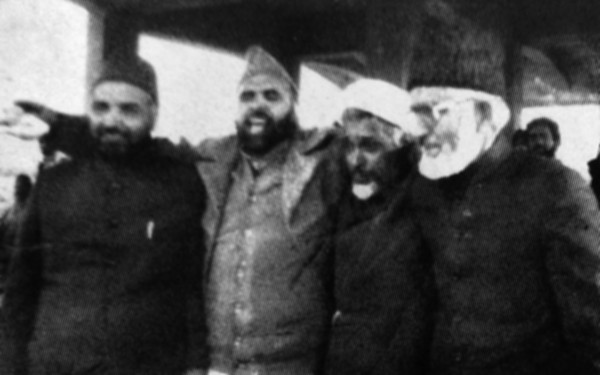
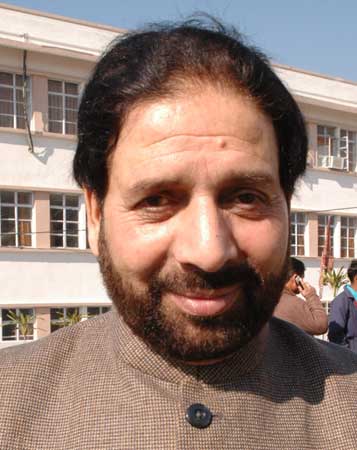
For NC’s old hand in Srinagar, Ali Mohammad Charloo alias Sagar, 1987 election rigging was “propaganda”. “You need to understand, late Mufti Mohammad sahab was disillusioned with Farooq-Rajiv accord in 1987 elections,” he said claiming that “this election was no different from other elections.”
“We are right if we say that rigging was done; MUF captured booths in downtown,” he said, “It was a propaganda and nothing less than publicity stunt.”
Sagar was fighting from Zaina Kadal assembly segment where he secured 22820 votes, while MUF’s Firdous Atta could win only 12243 votes.
“If there was rigging, then how come MUF’s candidate secure 12 thousand votes despite NC’s alliance with AAC?” asks Sagar.
Repeating his party colleagues’ argument, Sagar said, “Those disgruntled should have moved to court.”
Having led “number of party rallies from Srinagar to different district headquarters” Sagar, who represents Khanyar feels, “These forces were united in the name of religion, while others were dubbed as Indian parties. They fought elections on Islam, Allah, pen, and green Parcham.”
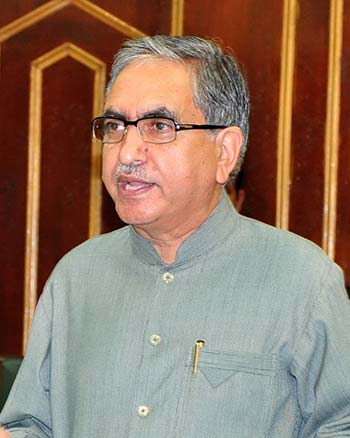
The role of Ghulam Hassan Mir and Hakeem Mohammad Yasin in 1987 elections was defined, subtly, by MUF.
Qazi Nisar supported them, however, with strong resentment from other MUF constituents.
Such was the understanding that MUF didn’t field any candidate against them. “Mir and Hakeem are creations of army and agencies,” Kamal said. “It was because of the support from agencies that they won but despite that Mir could do nothing in 1987 elections against me.”
Kamal further alleged, “MUF was created in Islamabad by late Mufti Mohammad Sayeed in league with Jama’at. That is why MUF’s symbol is now PDP’s identity.”
Kamal supports his argument saying, “Mufti was not truthful but he spoke his heart out after aligning with BJP. He credited Hurriyat and militants for his success.”















